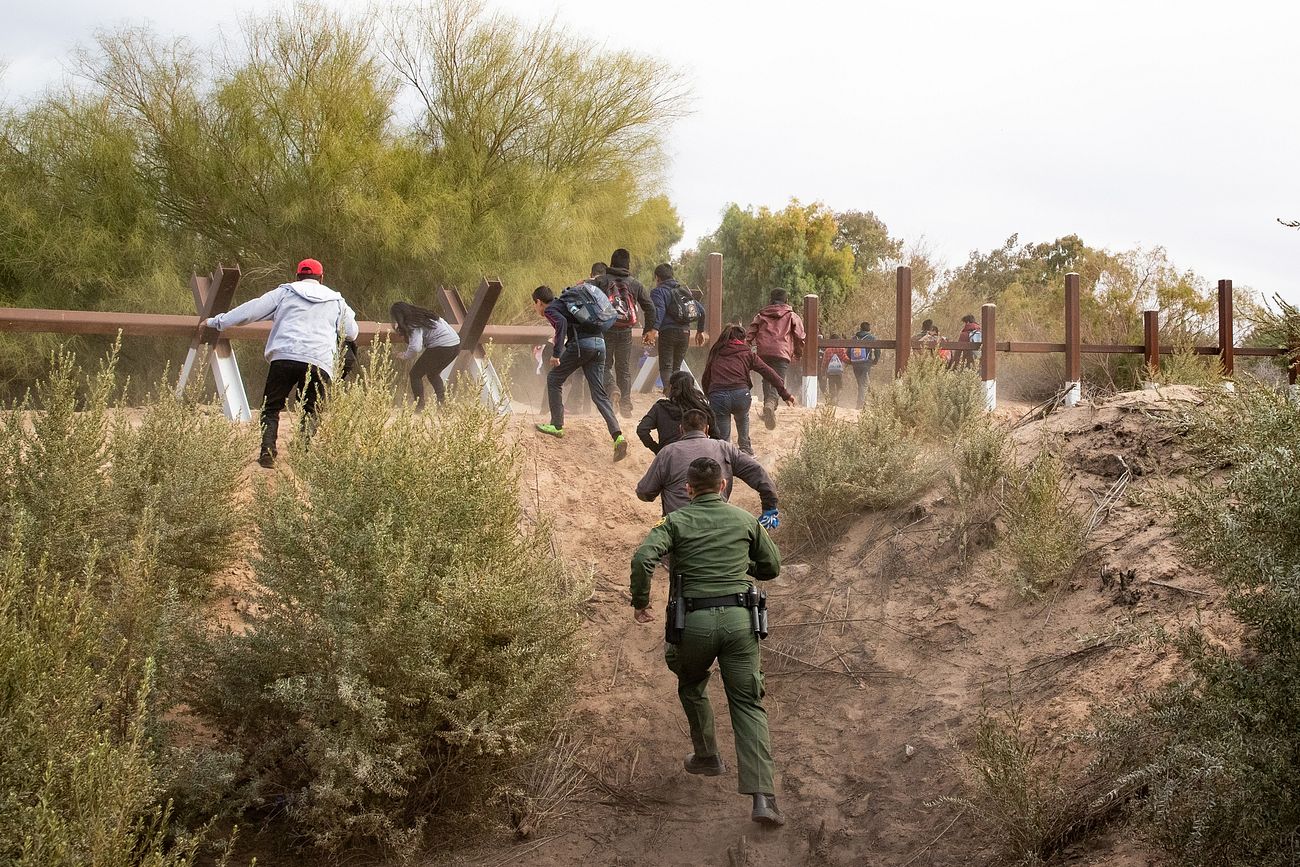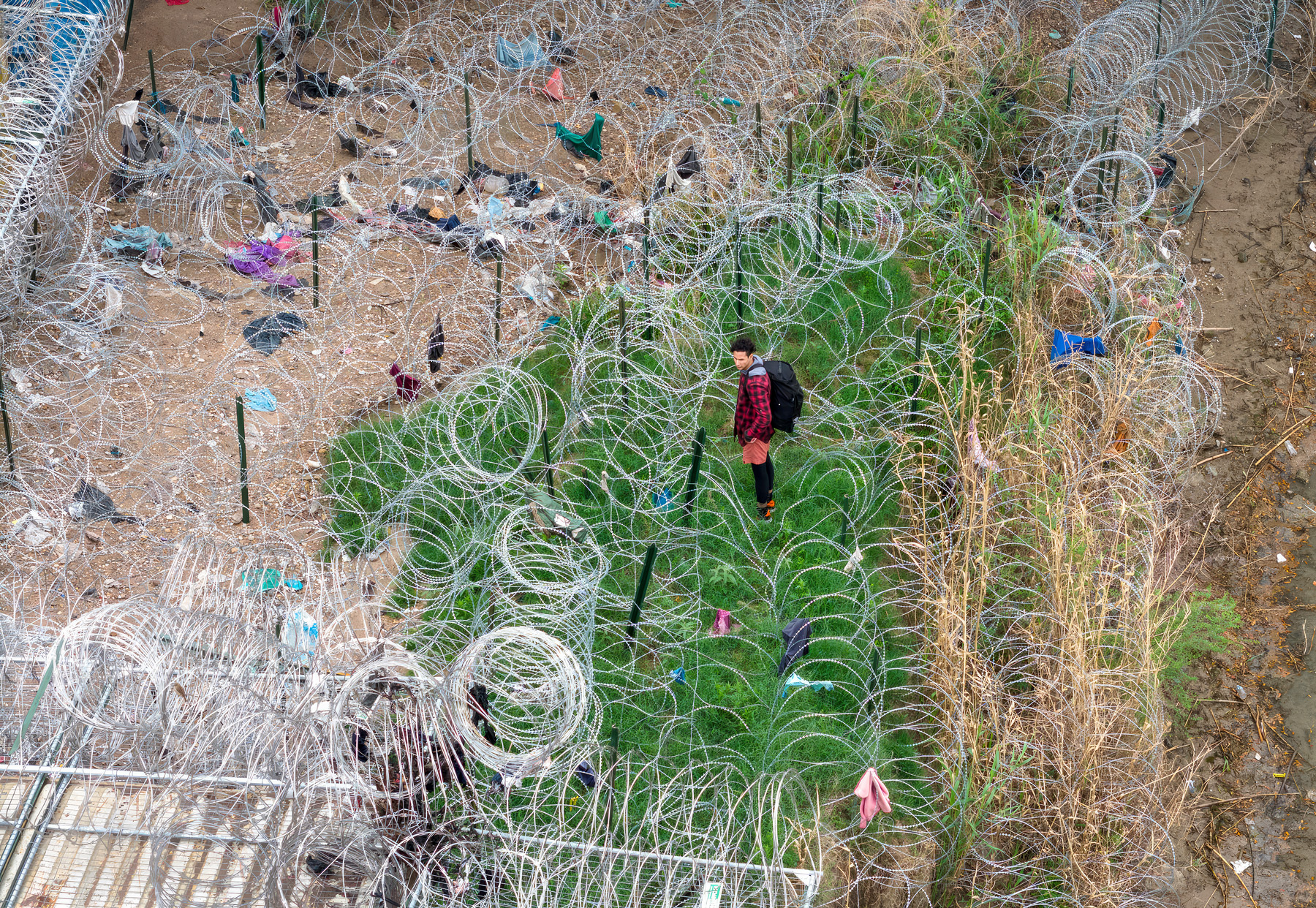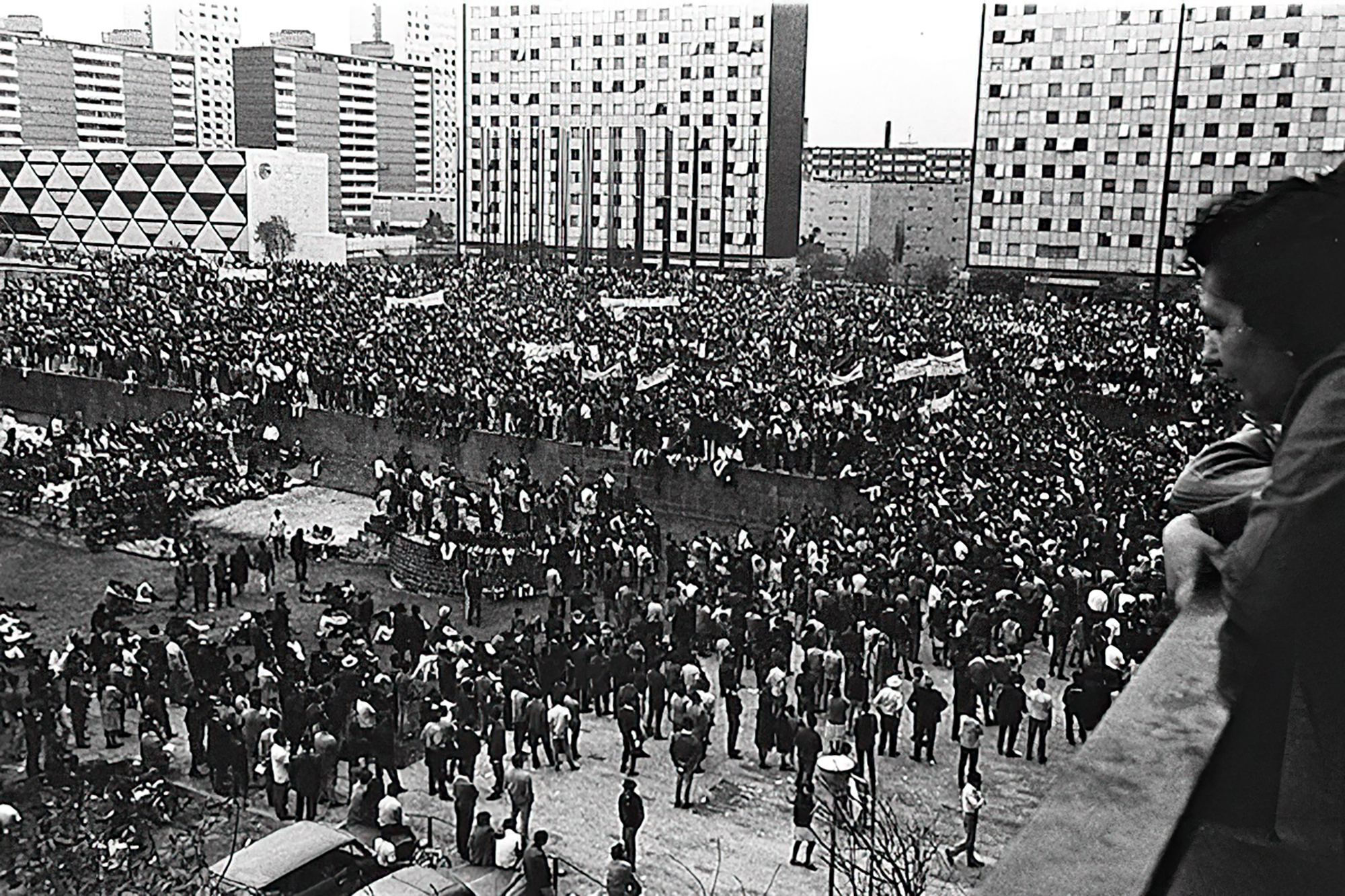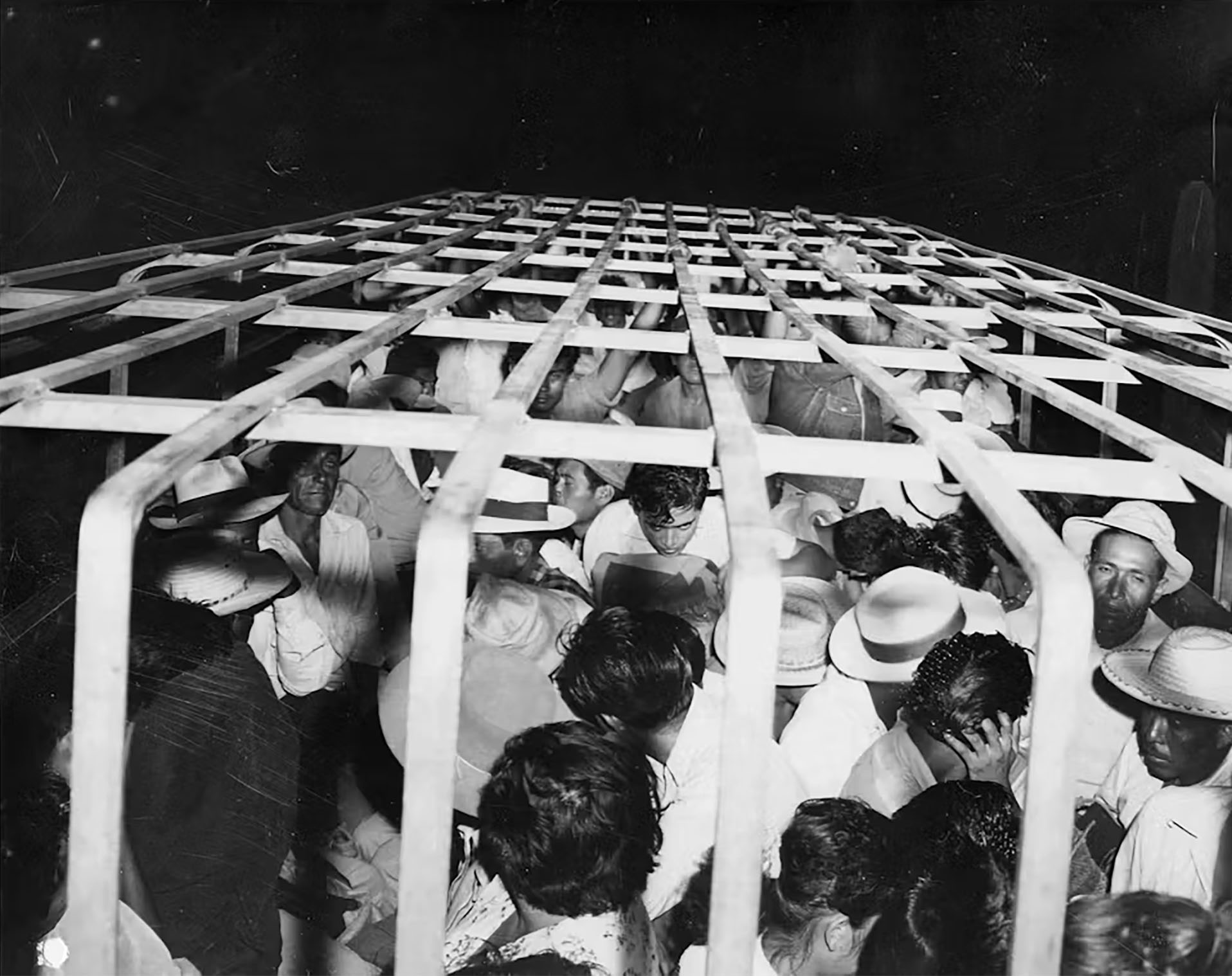"We are suffering from strong domination and we are standing"
- Iturbide is Mexican and uses nahuatl language in its daily routine. Language is not their only concern, as it works to maintain the life of the Nahuatl in a cooperative formed in their community. Before we go home, we caught him in Eskoriatza doing the title of expert in Strategies for the Revitalization of Original Languages.
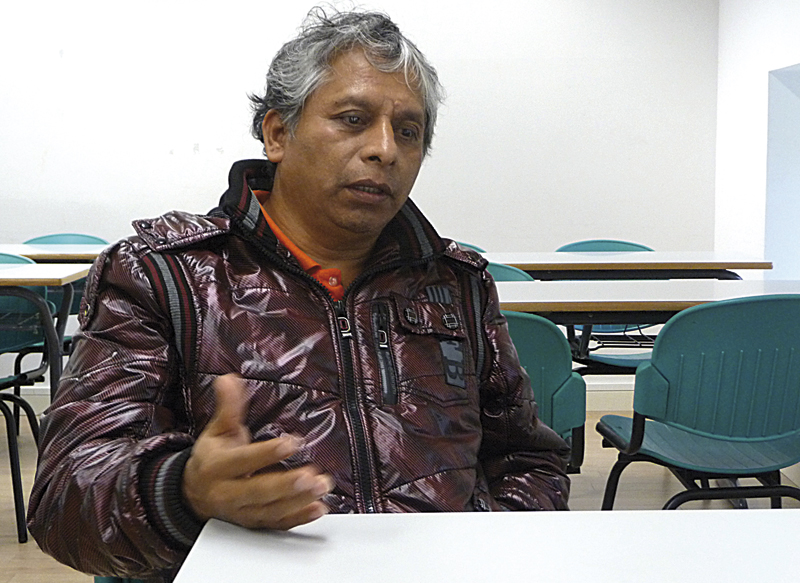
Bonifacio Iturbide has its origin in the Mexican municipality of Cuetzala, in the state of Puebla. It belongs to the Nahuatl community, the largest indigenous community in Mexico. Today, over a million and a half people speak their language on demand, but their survival is not guaranteed. The Union of Cooperatives Tosepan association, of which Iturbide is a member, launched the radio to encourage use and maintain community habits.
Tell us what the radio project is.
We started it a year ago. Through cultural production, we want to offer programmes in our language, and to save and promote our language. We want a radio that offers information in our language.
We are very critical of the system, we see the situation in our country differently, not as seen today by television channels or other radios. So we also want to show how we'd like to live, and we're looking at how to do that. For that I have come, looking for strategies and tools for community radio that strengthen the language within the Nahuatl culture.
After a year, what is the place of radio in the Nahuatl community?
It still has little force within the community. When we started, we realized that most people wanted to hear a conventional radio. In Mexico, 96 per cent of radios are held by private companies and the Government, for its part, has 2.5 per cent. The latter include the Community radios, which are not legalised, because we have a different proposal from the commercial and government radios. The law is very tough, and it says that community radios shouldn't be inside communication reform, because they're radical, they're attacking, they're rebelling.
In the community, you may not know, but when we say we want FM radio, we're not talking about commercial radio. We get young people who want to speak Spanish on the radio and we tell them no, we have to do it as we speak, not as the other person does. In addition to language, content is important to us: narkocorridos (narkocorridos songs), music against gender, music in English that has no messages and only serves to spend time should not be offered.
Over the past few months, we've realized that people are responding, the written messages that come to us are pretty inconsistent. People are attaching importance to the radio of our people. I think it can still have a lot of influence, even if it is a small radio we can gain a lot and in the field of language it will go further.
You've also developed other projects from the radio.
We have about 130 hours engraved on the character of our people, grandparents, women, how they lived in the village, the plants they know, the medicinal plants… At the same time, we are recovering the expressions and words we are losing, along with cultural knowledge. As a result, we have prepared a dictionary of 7,000 entries and an inspection is being carried out.
In addition, we have held gastronomic competitions in the cooperative and received between 70 and 80 recipes. We ask the members for the dishes prepared by themselves and in addition to the Nahuatarras, we have received those from the members of the Totonaka community. We ask you to tell us how you prepare them and how you make them. The recipes are written, using the written transmission of the nahuatl.
You mentioned the cooperative. What goals did you create?
We founded the cooperative in 1977, because they sold very expensive commodities and bought our products at very low prices. Rice, for example, sold us at 12.50 pesos, when we collected everybody's money and started working in the cooperative, we bought it at 2.50 pesos in transportation expenses.
From that moment when we met, our ethno-cultural state was on the table, and the assemblies, for example, we did them involuntarily. We strengthen processes and think about saving money and creating more co-operatives for the loan. We did the health co-op and after the education co-op. We realized that language was being lost and that this educational system was being swallowed.
What is the situation of nahuathlete in Mexican education?
The Mexican Public Education Secretariat has a unique curriculum for the entire country. The State offers education in the main language, i.e. in Spanish. We believe that each group of people from different backgrounds must be prepared according to their needs, their territory, their culture and their origin.
Nahuatla is recognized as a national language but in classrooms it is not used in all subjects, it is only taught in those subjects or parts thereof in which it is necessary to teach them involuntarily.
What work have you done in this area?
We started in 2007 with a school called Haur Etxea, and this year we've graduated from the first generation and we've started high school. Now, in high school, we're working so that mathematics and biology can be given in the Nahuatl language.
In addition, we believe that students should not stay locked in the classroom for four or six hours, we believe in the practices performed in the environment. We believe that practice in rural areas and the integration of our culture – planting maize and vegetables, knowing birds, flowers and nature – can learn biology, chemistry and mathematics. We want to bring together education, our environment, health and culture.
You have been doing the title of expert in Strategies for the Revitalization of Original Languages by Garabide and Huhezi. Did you draw conclusions?
Some of us have become masters of a reality that we have already realized beforehand: we are suffering an enormous subordination and we are standing, passive, unheard of in the face of the situation. Whatever the situation, if it continues, we will not realize when our language will be lost, because we will accept another language and abandon ours. We are here to warn people that if we continue like this, we will disappear, millions of people of origin will be in various territories but our languages will not be. It is in our hands to do something and to leave the descendants the responsibility to continue along that path.
Oinarrizko maia komunitateko U Yich Lu’um [Lurraren fruitu] organizazioko kide da, eta hizkuntza biziberritzea helburu duen Yúnyum erakundekoa. Bestalde, antropologoa da, hezkuntza prozesuen bideratzaile, eta emakumearen eskubideen aldeko aktibista eta militante... [+]
Mexikoko bi emakume hauen bizitzak indarkeriak eta desplazamenduak zeharkatzen ditu. Haien familiako edo komunitateko kideak hiltzen ikusi dituzte, eta krimen antolatuak zabaltzen duen terrorea azalean sentitu dute; mehatxuak, jazarpena... ohiko dituzte. Baina horrek guztiak... [+]
It was impossible to guess who was or who was the motto I read, but who was!
Ángel González Olvera was known in Mexico 11 years ago when the bertsolaris invited us to a few days with their improvisers. He lived on a high hill, feeding on birds, pigeons, pigeons, hedgehogs,... [+]
Born 2 October 1968. A few months earlier, the student movement started on June 22 organized a rally in the Plaza de las Tres Cultura, in the Nonoalco-Tlatelolco unit of the city. The students gathered by the Mexican army and the paramilitary group Olympia Battalion were... [+]
In the desert of Coahuila (Mexico), in the dunes of Bilbao, remains of a human skeleton have been found. After being studied by archaeologists, they conclude that they are between 95 and 1250 years old and that they are related to the culture of Candelaria.
The finding has been... [+]












